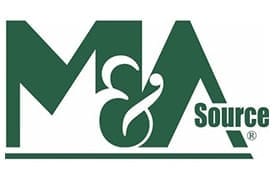Uncertainty is always bad for business, and the on-again, off-again tariff showdown between the U.S. and Canada is bound to hit the whiskey business hard.
A quick review, in case you’ve not been focused on international policy. On February 1, President Trump signed executive orders imposing 25% tariffs on Canada and Mexico.
Meanwhile, Canadians retaliated swiftly. Several provinces have ordered U.S.-made alcohol pulled from shelves. In Ontario, Premier Doug Ford ordered the Liquor Control Board of Ontario (LCBO) to take American products off its shelves and remove them from its catalog so retailers and restaurants wouldn’t be able to order them. The LCBO lists more than 3,600 products from 35 U.S. states in its catalog. In British Columbia, Premier David Eby is only targeting alcohol from Republican-run states.
In one day, an industry that exports $3 billion of American alcohol was thrown into chaos.
If you own a distillery or distributorship, your business will definitely be affected negatively if the trade war continues. Tariffs are taxes on imported goods, and while the money goes directly to the government, the importer must include the cost of the tariffs in the final price they place on the imported products. That means consumers will generally see fairly substantial price increases – if they can buy the products at all. (See angry Canadians, above.)
Economists say that U.S.-made wine, beer and whiskey account for significant revenue for the U.S. California alone accounts for more than $1 billion in exported wine. Tennessee tops the list for whiskey, exporting more than $914 million, and Georgia leads the way for beer with more than $99 million in exports. Permanent tariffs will almost certainly have a big effect on sales, profitability, and employment in those industries. Even after the tariffs are lifted, Canadians may choose to buy Canadian products over American in protest.
Some distillers and distributors may be able to afford to lower their wholesale prices in order to offset the higher costs to importers. But that tactic may start a downward spiral in profitability, even if it keeps products flowing between the two countries. The alcohol industry has seen declining sales over the past 20 years because of changing habits and health awareness. Generation Z consumers spent 40% less on alcohol in 2021 than other generations.
If you’ve been thinking about selling your business, you’ll need to make some quick decisions. Buyers and investors will make offers based on your profitability, which could change dramatically over the next year. Uncertainty will also shrink the pool of buyers and make them more risk-averse.
As an owner, you’ll need to assess your own appetite for risk and decide whether the time is right to exit the business. No one has a crystal ball, but owners who prepare to sell early will have an advantage in an uncertain market.
For a complimentary and confidential opinion of value, click here.






